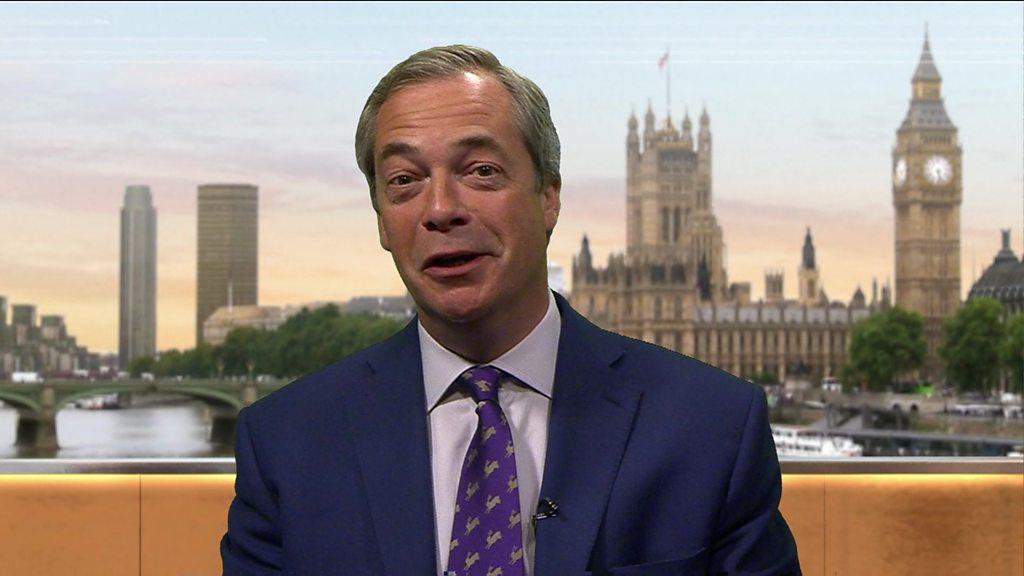Can UKIP's next leader unite the party?
- Published
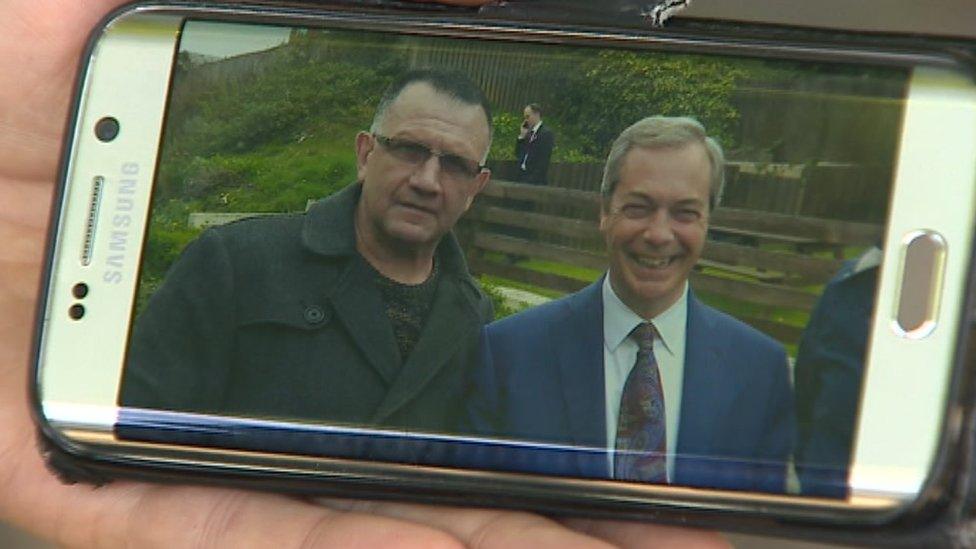
Mark Jones with outgoing UKIP leader Nigel Farage
UKIP is embroiled in a leadership battle over who will replace Nigel Farage - but can any of the five candidates hoping to replace him unite the party's followers? BBC Wales' Paul Martin reports.
"He was such a brilliant man... he really held the party together."
Mark Jones from Merthyr Tydfil who - like the rest of his family - voted Labour for years, is talking about Nigel Farage.
Mr Jones now volunteers for UKIP and says the impact Mr Farage has on people was summed up on a recent campaign visit to south Wales.
"Everybody in Blackwood, they were all for him," he told us.
"Crossing the road to speak to him... he had a fabulous reaction.
"It was brilliant."
Mr Jones says he is concerned UKIP is "going to go downhill" without Nigel Farage at the helm.
That is a worry felt by many in the party - the candidates to replace him are relative unknowns.
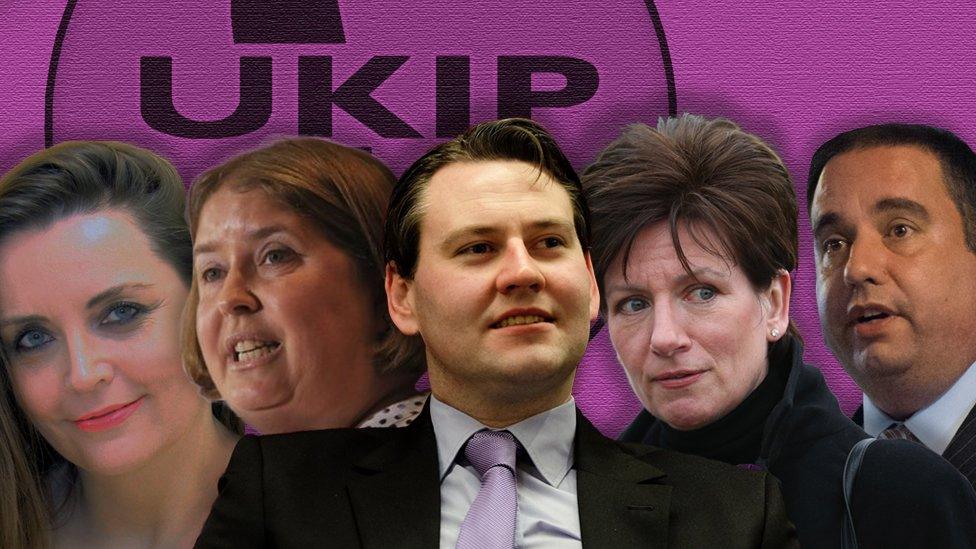
The contenders: Elizabeth Jones, Lisa Duffy, Philip Broughton, Diane James and Bill Etheridge
Diane James, Lisa Duffy, Bill Etheridge, Liz Jones and Philip Broughton are not names that would easily roll off the tongue of many voters.
Are they capable of sketching out a vision for UKIP now its unifying cause - the EU referendum - has been won?
Can they bridge the toxic personal divisions in the party - the rows that have erupted into the open following Mr Farage's decision to step away?
And can they, like Mr Farage, manage to appeal to two very different sections of the electorate - Tory voters and Labour voters?
The party's recent success has been largely built on attracting voters in traditionally Conservative parts of the south of England, and ex-Labour supporters in former industrial areas such as the south Wales valleys.
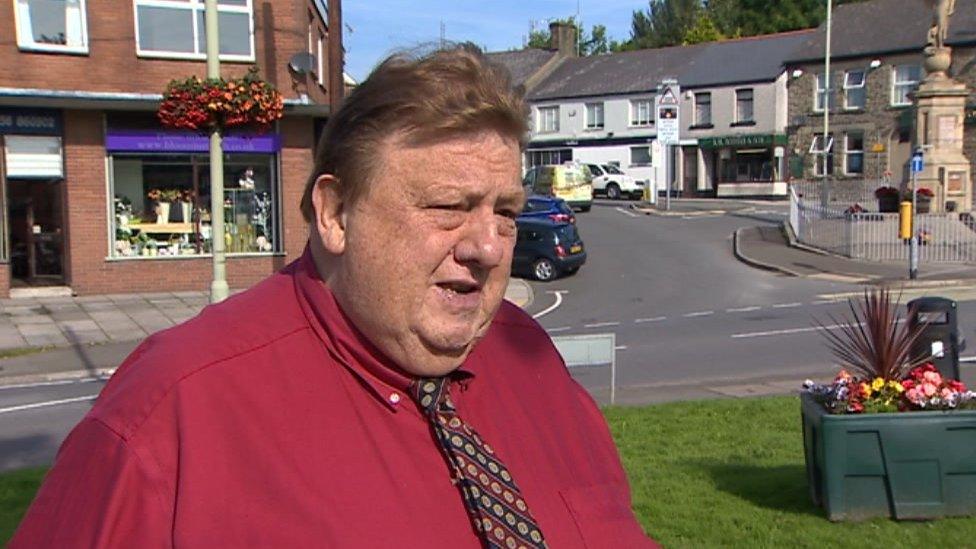
Chris Smart says immigration would be a common cause for UKIP post-Farage
UKIP chairman in Wales Chris Smart is concerned recent infighting in the party could lead many members to return to their former political homes, whether Labour or Tory.
But he also thinks there is still a common cause that can unite those voters and keep UKIP going post-Farage.
That cause is immigration.
"Some of the worries of ordinary working class Labour voters in Merthyr are no different from those of strong Conservatives," Mr Smart told the BBC. "Particularly where immigration's concerned.
"Concern about taking jobs, British jobs, going to overseas people.
"So really I can see how the two sides can come together."
- Published4 July 2016
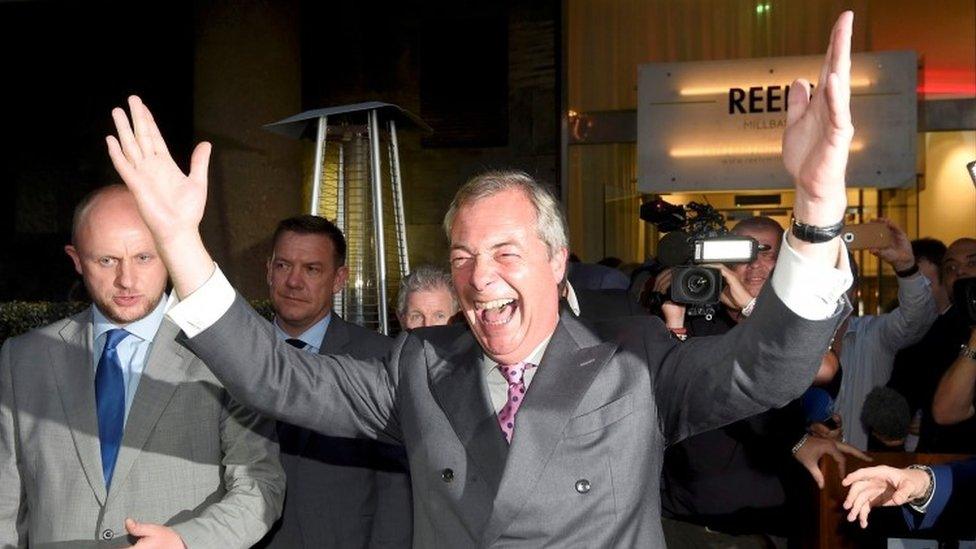
- Published15 August 2016
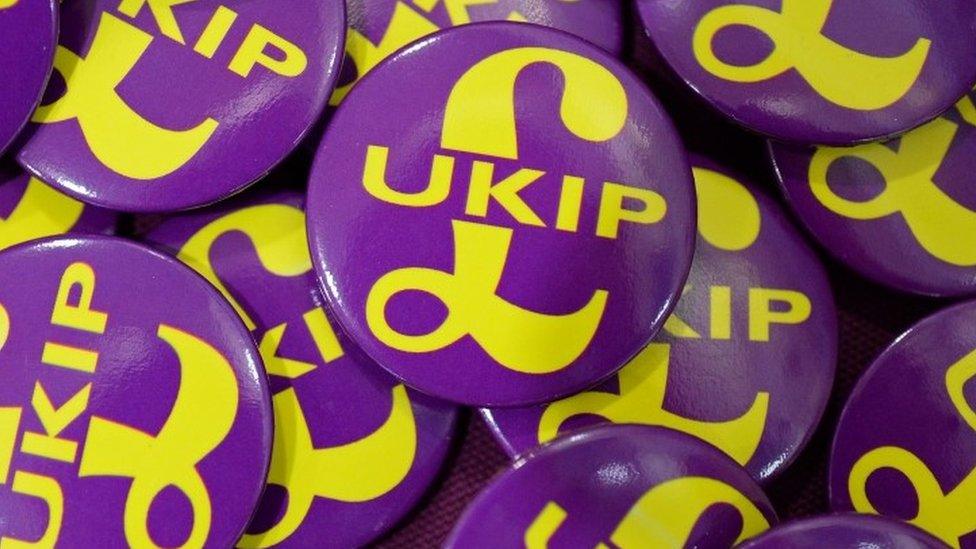
- Published6 May 2016
